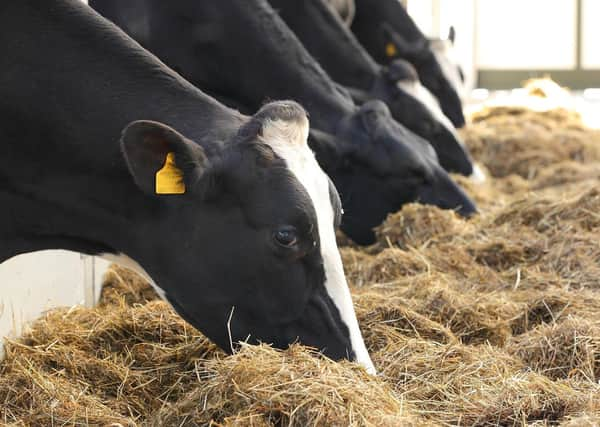Future of small-scale renewables - the future is bright in the UK and NI


- ‘Renewables growing faster than any fuel in history says BP’ (Daily Telegraph)
- ‘Cow manure helps to power up the National Grid’ (Daily Telegraph)
Advertisement
Advertisement
- ‘Northern Ireland can become a leader in hydrogen technology’ (BBC Northern Ireland)
This may seem to be hard to believe in light of the problems we have seen over the last number of years, but in a post-NIRO world, it would appear that the future is bright for small scale renewables.
In the first article, BP made the striking observation in the 2020 edition of the BP Energy Outlook that renewables are growing faster than any fuel in history. This came weeks after BP set out plans to reduce fossil production by 40 percent and increase renewable investment to £4 billion per year.
Secondly, the Daily Telegraph ran a news story where renewable biogas was produced from cattle slurry which was then injected into the National Grid. This was the first time this had been done in the UK. The Murrow Anaerobic Digestion Plant in Cambridgeshire mixed the slurry with straw and left it in an oxygen-free environment to produce biogas, and then sold to the grid.
Advertisement
Advertisement
This trial began in July 2020 and the National Grid has confirmed that the AD plant has connected to the gas national transmission system late August, successfully enabling flows of up to 15,000 standard cubic meters per hour of the biogas into the grid. There are now plans to roll this method of creating energy countrywide.
What is clear is that we have turned a corner in relation to biogas, with energy companies realising that it provides reduced carbon emissions compared to conventional natural gas. Here in Northern Ireland we already have a network of AD plants and this could open the door for the small micro-scale plant solutions that the UFU have sought over the last 10 years.
There is another consideration which would be very relevant to my other area of policy responsibility; the dairy sector. Slurry management is a constant for dairy farmers, with the associated environmental regulations, along with the health and safety considerations, it is specifically a topical subject for local dairy farmers.
Currently, the UFU dairy committee are looking at what future support could look like in the context of post-Brexit Agriculture Bill. With the possibility of environment-linked payments for farmers who use their land and livestock to help the environment, this could be a very relevant area of interest for local dairy farmers. The affordability of micro scale AD technology and lack of route to market have been prohibitive to date but the changing policy landscape could change this.
Advertisement
Advertisement
The third and final article highlights hydrogen technology. The landscape changed last year when Wrightbus was bought by industrialist Jo Bamford. With a passionate and extensive interest in hydrogen technology, there are already plans to introduce three hydrogen-fuelled buses into Belfast and further orders to build 80 hydrogen buses.
The buses work by passing hydrogen into a fuel cell where a chemical reaction creates an electrical current to drive the bus. The only thing that comes out of the tailpipe is water. But of course, cost at this stage in inhibitive, with a typical bus costing £500,000.
Hydrogen is conventionally made from natural gas, but that is a fossil fuel and at odds with the progress to Net Zero. The game changer is that there is a green alternative, which uses unused capacity from wind turbines. Electricity will be passed through water in an electrolyser to split it into hydrogen and oxygen.
The hydrogen will be taken to Belfast where it will run Translink’s new buses. Experts have identified that many of the grid capacity issues could be addressed by this use of more efficient wind power.
Advertisement
Advertisement
These technologies are still in their infancy but what is clear is that the land-based sector could have a role supporting the transition to a low carbon economy but there will need to be government policy support.